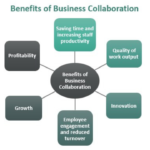In recent years, India has witnessed a surge in start-up culture, with entrepreneurs driven by innovation, ambition, and the desire to make a significant impact. However, the journey from an idea to a successful start-up is not an easy one. It requires careful planning, strategic execution, and the incorporation of key elements that form the foundation of a thriving business. In this article, we will explore the essential elements that contribute to the success of an Indian start-up, providing valuable insights and data to guide aspiring entrepreneurs.
Innovative Idea with Market Potential
At the core of every successful start-up lies a unique and innovative idea that addresses a significant problem or fulfills an unmet need in the market. Identifying a gap in the market and developing a product or service that resonates with customers is crucial. According to a report by Nasscom, start-ups focusing on deep technology, fintech, health tech, and e-commerce have gained significant traction in India, highlighting the potential of these sectors.
Market Research and Validation
Thorough market research is essential to validate the viability of the start-up’s idea. This involves conducting surveys, analyzing market trends, and gathering customer feedback to ensure there is a demand for the product or service. Start-ups should also assess the competitive landscape and identify their unique selling proposition (USP) to differentiate themselves from existing players.
Scalable Business Model
A successful Indian start-up should have a scalable business model that allows for growth and expansion. Scalability ensures that the start-up can handle an increasing customer base and adapt to changing market dynamics. Investors are more likely to support start-ups with a scalable business model as it demonstrates long-term potential and profitability.
Strong Team and Leadership
Building a strong and cohesive team is critical for the success of a start-up. Entrepreneurs should assemble a team comprising individuals with complementary skills, expertise, and a shared vision. According to a study by CB Insights, 23% of start-ups fail due to not having the right team. Effective leadership is equally important, as it sets the tone, provides guidance, and fosters a culture of innovation, resilience, and collaboration.
Access to Funding and Resources
Securing adequate funding is often a major challenge for start-ups. Indian entrepreneurs can leverage various sources of funding, including angel investors, venture capitalists, government schemes, and crowdfunding platforms. Additionally, start-ups can benefit from incubators, accelerators, and co-working spaces that provide access to resources, mentorship, and networking opportunities.
Focus on Customer Experience
In today’s customer-centric business landscape, prioritizing the customer experience is paramount. Successful start-ups invest time and effort in understanding their target audience, delivering exceptional products or services, and providing excellent customer support. By establishing a strong brand identity and building customer loyalty, start-ups can create a sustainable customer base.
Agility and Adaptability
Start-ups operate in a dynamic environment characterized by rapid technological advancements and evolving consumer preferences. Agility and adaptability are crucial elements for success. Start-ups should be open to feedback, willing to iterate and pivot when necessary, and quick to embrace emerging trends and technologies. This flexibility allows them to stay ahead of the competition and seize new opportunities.
Building a successful start-up in India requires a combination of vision, strategy, and execution. By incorporating the key elements mentioned above, entrepreneurs can lay a strong foundation for their ventures. Innovative ideas, market validation, scalable business models, strong teams, access to funding, customer focus, and agility are vital components that contribute to the success of an Indian start-up.
It is important to remember that while these elements are essential, perseverance, resilience, and continuous learning are equally critical. The start-up journey is filled with challenges and obstacles, and entrepreneurs must remain committed to their vision and adapt to the ever-changing business landscape.
Furthermore, fostering a culture of innovation and collaboration within the start-up is essential. Encouraging employees to think creatively, share ideas, and experiment with new approaches can lead to breakthrough innovations and solutions. Collaboration with industry experts, mentors, and other start-ups can also provide valuable insights and networking opportunities.
Government support and favorable policies play a significant role in fostering a conducive environment for start-ups in India. Initiatives like “Startup India” and various incubation programs have been instrumental in providing assistance, funding, and mentorship to budding entrepreneurs. By leveraging these resources, start-ups can accelerate their growth and navigate the challenges more effectively.
Moreover, data-driven decision-making should be a cornerstone of every successful start-up. Collecting and analyzing relevant data can provide valuable insights into customer behavior, market trends, and performance metrics. Start-ups can leverage data analytics tools and technologies to gain a competitive edge, optimize their operations, and make informed strategic decisions.
To illustrate the impact of these key elements, let’s consider the success story of a notable Indian start-up. Zomato, the food delivery and restaurant discovery platform, started as a simple idea to provide users with a comprehensive database of restaurants. With a scalable business model, relentless focus on customer experience, and strategic expansion, Zomato has become a household name in India and has expanded to several international markets.
Zomato’s success can be attributed to its innovative idea, market research, and validation. The company recognized the growing demand for food delivery services and capitalized on the emerging smartphone penetration in India. Through strategic partnerships, investments in technology, and a strong team, Zomato built a robust platform that caters to millions of users and offers a seamless dining experience.
Furthermore, Zomato’s ability to adapt and evolve with changing market dynamics has been instrumental in its success. The company expanded its services beyond food delivery and ventured into cloud kitchens and online grocery delivery, diversifying its revenue streams and staying ahead of the competition.
In conclusion, building a successful start-up in India requires a holistic approach that encompasses innovative ideas, market validation, scalability, strong leadership, access to funding, customer focus, agility, and a data-driven mindset. Entrepreneurs must remember that the start-up journey is a continuous learning process, and perseverance is key to overcoming challenges and achieving long-term success. By embracing these key elements and leveraging the available resources and support, Indian start-ups can lay a strong foundation for growth, innovation, and impact in the business world.



